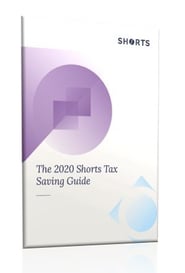
Rishi Sunak has ordered a review of the Capital Gains Tax (CGT) rules, paving the way for a potential major overhaul of the current CGT regime.
Currently, CGT rates are 10% for basic-rate taxpayers and 20% for higher and additional-rate taxpayers, rising to 18% and 28% respectively where gains relate to residential property. These rates are much lower than Income Tax rates (20%, 40% and 45% for basic-rate, higher rate and additional-rate taxpayers), making capital gains particularly attractive to taxpayers.
Office for Tax Simplification review
The Chancellor appears to be concerned that the disparity between Income Tax and CGT rates is driving certain behaviours, and he has therefore asked the Office for Tax Simplification (OTS) to undertake a review. The OTS is an independent advisory body, whose remit is to advise the government on simplification of the tax system for taxpayers.
In his letter Mr Sunak has said “In particular, I would be interested in any proposals from the OTS on the regime of allowances, exemptions, reliefs and the treatment of losses within CGT, and the interactions of how gains are taxed compared to other types of income”.
Raising taxes to pay for Covid-19?
With the high cost of the measures introduced to combat Covid-19, it perhaps inevitable that taxes will have to rise to pay for the bill. Whilst the exceptional circumstances may be regarded as justifying overturning the manifesto commitment not to raise the rates of Income Tax, VAT or National Insurance, CGT is not included within that pledge so an increase may be seen as more palatable. It is possible that a CGT review will lead to an increase in rates more in line with Income Tax, or that some of the reliefs currently available will be watered down or abolished altogether.
Which areas of CGT may be affected?
All areas of CGT are reported to be on the table, including;
- the sale of a main home (currently exempt from CGT),
- business disposals and liquidations (currently benefit from a special 10% rate),
- incorporations (where gains are currently deferred), and
- relief for capital losses.
There are currently many situations where capital gains can be deferred, to prevent what would otherwise be a “dry” tax charge because no cash has been received.
When will we know more?
The OTS’ call for evidence is open until October, so its final report will not be published until at least towards the end of the year. The government will then need to consider the recommendations and decide on what changes they will make to the system.
However, taxpayers considering making a disposal in the short term, for example selling shares in their company, or winding up their business, should consider whether to bring their plans forward to ensure current CGT rates and reliefs are available. If you would like to discuss any of the above with a member of our tax team, please give us a call, or arrange your free consultation by complete our online enquiry form and a member of the team will get back to you.
Similar recent artices:
- 15 Tax Ways to reduce Corporation Tax
- Tax efficient ways to ring fence property assets for Companies
- The two year window for R&D Tax Relief claims could be closing soon
The Shorts 2020 Tax Saving Guide
|
Our tax team created the 2020 tax saving guide, which includes;
Download your free copy of the guide.
|

David Robinson
As a Tax Partner, I advise clients on all aspects of UK tax, ranging from business taxes, transactions and private client matters, helping to achieve the objectives and aspirations of businesses and their owners.
View my articlesTags: Business Taxes



